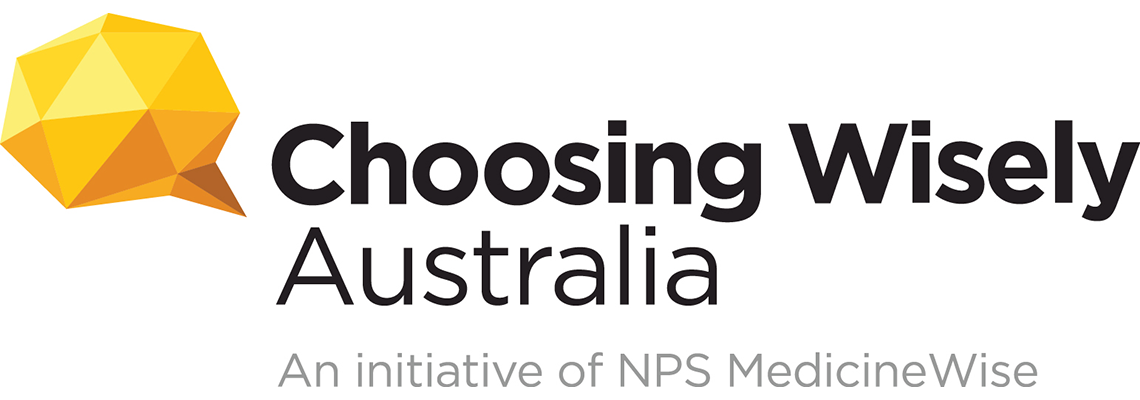For a quick preview of ACN’s Choosing Wisely first 5 recommendations click here.
For an outline of this important intervention read below.
Choosing Wisely – what’s it all about?
Choosing Wisely began in 2012 in the USA, as an initiative of the American Board of Internal Medicine Foundation supporting the healthcare community and consumers to start conversations about eliminating the use of unnecessary and sometimes harmful tests, treatments, and procedures. The movement is now worldwide with the launch of Choosing Wisely Canada in 2013 and Australia in 2015. Similar initiatives are being developed in Germany, Italy, Japan, the Netherlands, Switzerland, the UK and New Zealand.
The Choosing Wisely Australia© initiative has 20 member organisations led by Australia’s professional colleges, societies and associations and facilitated by NPS MedicineWise. The Australian College of Nursing is proud to be the first nursing organisation to partner with Choosing Wisely Australia enabling a significant nursing contribution by harnessing the expertise of members from a broad range of nursing specialties.
Unnecessary practices are a diversion from high quality care. They can lead to more frequent and invasive investigations that can expose consumers to undue risk of harm, emotional stress and financial cost. We all need to understand the evidence and appropriateness in performing tests, treatments and procedures. Choosing Wisely Australia is changing the culture, that more is not always better when it comes to tests, treatments and procedures. Choosing Wisely Australia enables the healthcare community to take a leadership role in the responsible management and fair distribution of finite healthcare resources.
Why is the Australian College of Nursing supporting Choosing Wisely Australia?
The Australian College of Nursing’s (ACN) aim is to promote and advance the nursing profession’s viewpoint and expertise, and contribute to the conversation about which treatments and procedures the nursing profession supports as best practice.
While Australia’s health care system faces a number of complex challenges in providing high quality, innovative, safe and cost effective care, as consumer advocates in a range of roles, nurses are well placed to improve outcomes by utilising evidence to effect change that helps shape the health care landscape. As dynamic members of healthcare teams nurses are essential to the delivery of high-quality health care, however, nurses do not operate in isolation. The ability to provide care that reflects best practice is also influenced by the health care environment and interactions with other health care providers at the forefront of care delivery and across a variety of settings including acute care, community and outreach environments, rural and remote settings, the education sector, and in key government and industry positions. Nurses use their knowledge, experience and expertise to influence wisely choosing the most appropriate, safe and effective nursing interventions for each individual and community.
Choosing Wisely Australia provides a supportive environment where clinicians are able to collaborate, regardless of profession, to generate discussion and disseminate ideas to improve practice and perhaps even influence health policy decisions. ACN, together with other professional associations and health care providers are leading the effort to eliminate unnecessary procedures and practices, which may result in more effective use of health care resources by effectively ‘disinvesting’ in them. As the voice of the nursing profession, ACN has a responsibility to take a leadership role in representing the expertise of our members and presenting their collective voice on improving care for consumers, a crucial part of which is the responsible management of finite health care resources.

